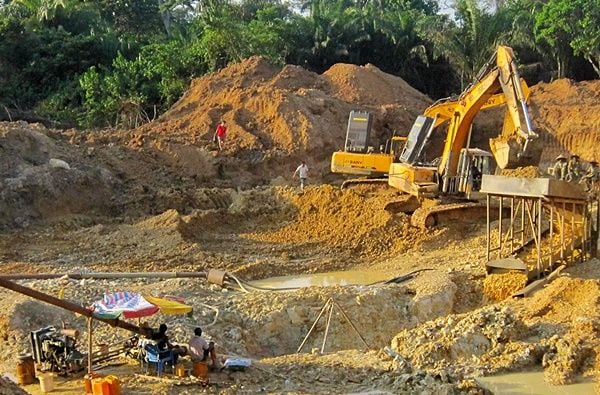Wacam, the Centre for Public Interest Law (CEPIL), and the Centre for Environmental Impact Analysis (CEIA) have united in a strong condemnation of mining operations within Ghana’s forest reserves, labeling these activities as a grave insult to the nation’s dignity. Their joint statement, issued on October 17, 2024, in Accra, outlines the far-reaching and detrimental environmental and social impacts resulting from such mining. The civil society organizations (CSOs) assert that the encroachment of mining into these reserves has led to alarming issues such as deforestation, water contamination, and the displacement of indigenous populations. They emphasize that allowing local or foreign entities to exploit these critical ecosystems undermines national integrity and should be considered unacceptable.
The statement highlights significant concerns regarding the Minerals and Mining Act, 2006 (Act 703), which the CSOs argue lacks the necessary mechanisms to hold mining firms accountable for the environmental degradation and social injustices they engender. They argue that current legislation fails to protect the country’s natural resources and communities adequately. The emphasis on monitoring and accountability arises from increasing awareness about how mining activities adversely affect the environment, with historical examples underscoring the urgent need for legal reforms.
In light of the ongoing crisis, Wacam, CEPIL, and CEIA are advocating for a comprehensive, multi-faceted strategy targeting both surface mining operations and illegal small-scale mining, known colloquially as "galamsey." They recommend a collaborative approach that transcends political affiliations, which includes implementing an immediate moratorium on new mining licenses. This step would aim to stem further environmental degradation and halt destructive practices that threaten the livelihoods of communities that rely on the forests for their survival.
The CSOs are calling for a robust mass mobilization effort among various stakeholders, including religious groups, community leaders, the media, and market traders, to ensure that the government remains accountable for its decisions regarding mining permit issuance and environmental stewardship. Such diverse participation is seen as crucial in creating a strong coalition capable of advocating for enhanced protections and more stringent regulations for mining activities, particularly in sensitive areas like forest reserves.
Wacam, CEPIL, and CEIA have raised awareness about the detrimental effects of mining in forest reserves since 2002, particularly emphasizing how mine wastewater has significantly harmed local ecosystems and water sources. They reference the catastrophic incidents involving Newmont Ghana Gold Limited, which discharged significant volumes of mine waste into River Subri on multiple occasions. The implications of these actions are dire, as River Subri is a critical water source for millions in Ghana. Such incidents underscore the pressing need for improved practices and accountability in the mining sector.
Lastly, the groups remark on the current "Third Jungle Boom" of mining, highlighting its extensive destruction of indigenous lands predominantly utilized for agricultural purposes. They note the increased use of cyanide in heap leaching—an economically favored method in mining—which has contributed to hazardous cyanide spillages throughout the country. Through their ongoing advocacy, Wacam, CEPIL, and CEIA aim to shed light on these critical issues while urging a reevaluation of mining laws and practices to prioritize environmental conservation and the rights of local communities, which are increasingly rendered vulnerable by unchecked industrial activities.


